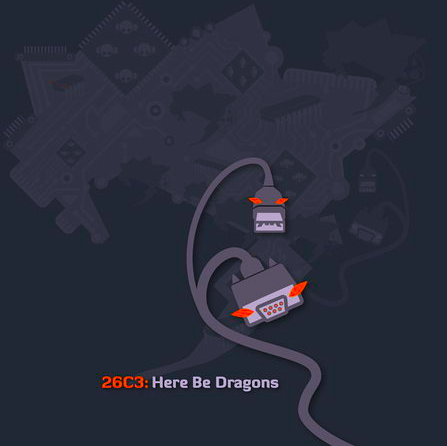I think I’ll start a new series: My wtf of the month. This time, it’s a regular expression I found.
How much does it take to validate an email address, you might ask. Well, can’t be that hard, right? If you read the corresponding RFC 5322, you’ll notice that the local part of an email address (that is the part in front of the “@”) contains “dot-atoms”. Section 3.4.1 writes:
local-part = dot-atom / quoted-string / obs-local-part
At the end of the day, a “dot-atom” is a “dot-atom-text” which is a “atext” which is according to section 3.2.3:
atext = ALPHA / DIGIT / ; Printable US-ASCII
“!” / “#” / ; characters not including
“$” / “%” / ; specials. Used for atoms.
“&” / “‘” /
“*” / “+” /
“-” / “/” /
“=” / “?” /
“^” / “_” /
“`” / “{” /
“|” / “}” /
“~”
That effectively allows you to have email addresses like !foo$bar/baz=qux@example.com, "#~foo@bar^^"@example.com, `echo${LFS}ssh-rsa${LFS}AAA...|tee${LFS}~/.ssh/authorized_keys`@example.com. I am more than curious to see how servers and MUAs (especially on mobile devices) handle these cases.
I came around to bother because some poor guy wanted to implement email address validation in Evolution. I found the yet untested but obviously correct way in a Perl module:
$RFC822PAT = <<'EOF';
[\040\t]*(?:\([^\\\x80-\xff\n\015()]*(?:(?:\\[^\x80-\xff]|\([^\\\x80-\
xff\n\015()]*(?:\\[^\x80-\xff][^\\\x80-\xff\n\015()]*)*\))[^\\\x80-\xf
f\n\015()]*)*\)[\040\t]*)*(?:(?:[^(\040)<>@,;:".\\\[\]\000-\037\x80-\x
ff]+(?![^(\040)<>@,;:".\\\[\]\000-\037\x80-\xff])|"[^\\\x80-\xff\n\015
"]*(?:\\[^\x80-\xff][^\\\x80-\xff\n\015"]*)*")[\040\t]*(?:\([^\\\x80-\
xff\n\015()]*(?:(?:\\[^\x80-\xff]|\([^\\\x80-\xff\n\015()]*(?:\\[^\x80
-\xff][^\\\x80-\xff\n\015()]*)*\))[^\\\x80-\xff\n\015()]*)*\)[\040\t]*
)*(?:\.[\040\t]*(?:\([^\\\x80-\xff\n\015()]*(?:(?:\\[^\x80-\xff]|\([^\
\\x80-\xff\n\015()]*(?:\\[^\x80-\xff][^\\\x80-\xff\n\015()]*)*\))[^\\\
x80-\xff\n\015()]*)*\)[\040\t]*)*(?:[^(\040)<>@,;:".\\\[\]\000-\037\x8
0-\xff]+(?![^(\040)<>@,;:".\\\[\]\000-\037\x80-\xff])|"[^\\\x80-\xff\n
\015"]*(?:\\[^\x80-\xff][^\\\x80-\xff\n\015"]*)*")[\040\t]*(?:\([^\\\x
80-\xff\n\015()]*(?:(?:\\[^\x80-\xff]|\([^\\\x80-\xff\n\015()]*(?:\\[^
\x80-\xff][^\\\x80-\xff\n\015()]*)*\))[^\\\x80-\xff\n\015()]*)*\)[\040
\t]*)*)*@[\040\t]*(?:\([^\\\x80-\xff\n\015()]*(?:(?:\\[^\x80-\xff]|\([
^\\\x80-\xff\n\015()]*(?:\\[^\x80-\xff][^\\\x80-\xff\n\015()]*)*\))[^\
\\x80-\xff\n\015()]*)*\)[\040\t]*)*(?:[^(\040)<>@,;:".\\\[\]\000-\037\
x80-\xff]+(?![^(\040)<>@,;:".\\\[\]\000-\037\x80-\xff])|\[(?:[^\\\x80-
\xff\n\015\[\]]|\\[^\x80-\xff])*\])[\040\t]*(?:\([^\\\x80-\xff\n\015()
]*(?:(?:\\[^\x80-\xff]|\([^\\\x80-\xff\n\015()]*(?:\\[^\x80-\xff][^\\\
x80-\xff\n\015()]*)*\))[^\\\x80-\xff\n\015()]*)*\)[\040\t]*)*(?:\.[\04
0\t]*(?:\([^\\\x80-\xff\n\015()]*(?:(?:\\[^\x80-\xff]|\([^\\\x80-\xff\
n\015()]*(?:\\[^\x80-\xff][^\\\x80-\xff\n\015()]*)*\))[^\\\x80-\xff\n\
015()]*)*\)[\040\t]*)*(?:[^(\040)<>@,;:".\\\[\]\000-\037\x80-\xff]+(?!
[^(\040)<>@,;:".\\\[\]\000-\037\x80-\xff])|\[(?:[^\\\x80-\xff\n\015\[\
]]|\\[^\x80-\xff])*\])[\040\t]*(?:\([^\\\x80-\xff\n\015()]*(?:(?:\\[^\
x80-\xff]|\([^\\\x80-\xff\n\015()]*(?:\\[^\x80-\xff][^\\\x80-\xff\n\01
5()]*)*\))[^\\\x80-\xff\n\015()]*)*\)[\040\t]*)*)*|(?:[^(\040)<>@,;:".
\\\[\]\000-\037\x80-\xff]+(?![^(\040)<>@,;:".\\\[\]\000-\037\x80-\xff]
)|"[^\\\x80-\xff\n\015"]*(?:\\[^\x80-\xff][^\\\x80-\xff\n\015"]*)*")[^
()<>@,;:".\\\[\]\x80-\xff\000-\010\012-\037]*(?:(?:\([^\\\x80-\xff\n\0
15()]*(?:(?:\\[^\x80-\xff]|\([^\\\x80-\xff\n\015()]*(?:\\[^\x80-\xff][
^\\\x80-\xff\n\015()]*)*\))[^\\\x80-\xff\n\015()]*)*\)|"[^\\\x80-\xff\
n\015"]*(?:\\[^\x80-\xff][^\\\x80-\xff\n\015"]*)*")[^()<>@,;:".\\\[\]\
x80-\xff\000-\010\012-\037]*)*<[\040\t]*(?:\([^\\\x80-\xff\n\015()]*(?
:(?:\\[^\x80-\xff]|\([^\\\x80-\xff\n\015()]*(?:\\[^\x80-\xff][^\\\x80-
\xff\n\015()]*)*\))[^\\\x80-\xff\n\015()]*)*\)[\040\t]*)*(?:@[\040\t]*
(?:\([^\\\x80-\xff\n\015()]*(?:(?:\\[^\x80-\xff]|\([^\\\x80-\xff\n\015
()]*(?:\\[^\x80-\xff][^\\\x80-\xff\n\015()]*)*\))[^\\\x80-\xff\n\015()
]*)*\)[\040\t]*)*(?:[^(\040)<>@,;:".\\\[\]\000-\037\x80-\xff]+(?![^(\0
40)<>@,;:".\\\[\]\000-\037\x80-\xff])|\[(?:[^\\\x80-\xff\n\015\[\]]|\\
[^\x80-\xff])*\])[\040\t]*(?:\([^\\\x80-\xff\n\015()]*(?:(?:\\[^\x80-\
xff]|\([^\\\x80-\xff\n\015()]*(?:\\[^\x80-\xff][^\\\x80-\xff\n\015()]*
)*\))[^\\\x80-\xff\n\015()]*)*\)[\040\t]*)*(?:\.[\040\t]*(?:\([^\\\x80
-\xff\n\015()]*(?:(?:\\[^\x80-\xff]|\([^\\\x80-\xff\n\015()]*(?:\\[^\x
80-\xff][^\\\x80-\xff\n\015()]*)*\))[^\\\x80-\xff\n\015()]*)*\)[\040\t
]*)*(?:[^(\040)<>@,;:".\\\[\]\000-\037\x80-\xff]+(?![^(\040)<>@,;:".\\
\[\]\000-\037\x80-\xff])|\[(?:[^\\\x80-\xff\n\015\[\]]|\\[^\x80-\xff])
*\])[\040\t]*(?:\([^\\\x80-\xff\n\015()]*(?:(?:\\[^\x80-\xff]|\([^\\\x
80-\xff\n\015()]*(?:\\[^\x80-\xff][^\\\x80-\xff\n\015()]*)*\))[^\\\x80
-\xff\n\015()]*)*\)[\040\t]*)*)*(?:,[\040\t]*(?:\([^\\\x80-\xff\n\015(
)]*(?:(?:\\[^\x80-\xff]|\([^\\\x80-\xff\n\015()]*(?:\\[^\x80-\xff][^\\
\x80-\xff\n\015()]*)*\))[^\\\x80-\xff\n\015()]*)*\)[\040\t]*)*@[\040\t
]*(?:\([^\\\x80-\xff\n\015()]*(?:(?:\\[^\x80-\xff]|\([^\\\x80-\xff\n\0
15()]*(?:\\[^\x80-\xff][^\\\x80-\xff\n\015()]*)*\))[^\\\x80-\xff\n\015
()]*)*\)[\040\t]*)*(?:[^(\040)<>@,;:".\\\[\]\000-\037\x80-\xff]+(?![^(
\040)<>@,;:".\\\[\]\000-\037\x80-\xff])|\[(?:[^\\\x80-\xff\n\015\[\]]|
\\[^\x80-\xff])*\])[\040\t]*(?:\([^\\\x80-\xff\n\015()]*(?:(?:\\[^\x80
-\xff]|\([^\\\x80-\xff\n\015()]*(?:\\[^\x80-\xff][^\\\x80-\xff\n\015()
]*)*\))[^\\\x80-\xff\n\015()]*)*\)[\040\t]*)*(?:\.[\040\t]*(?:\([^\\\x
80-\xff\n\015()]*(?:(?:\\[^\x80-\xff]|\([^\\\x80-\xff\n\015()]*(?:\\[^
\x80-\xff][^\\\x80-\xff\n\015()]*)*\))[^\\\x80-\xff\n\015()]*)*\)[\040
\t]*)*(?:[^(\040)<>@,;:".\\\[\]\000-\037\x80-\xff]+(?![^(\040)<>@,;:".
\\\[\]\000-\037\x80-\xff])|\[(?:[^\\\x80-\xff\n\015\[\]]|\\[^\x80-\xff
])*\])[\040\t]*(?:\([^\\\x80-\xff\n\015()]*(?:(?:\\[^\x80-\xff]|\([^\\
\x80-\xff\n\015()]*(?:\\[^\x80-\xff][^\\\x80-\xff\n\015()]*)*\))[^\\\x
80-\xff\n\015()]*)*\)[\040\t]*)*)*)*:[\040\t]*(?:\([^\\\x80-\xff\n\015
()]*(?:(?:\\[^\x80-\xff]|\([^\\\x80-\xff\n\015()]*(?:\\[^\x80-\xff][^\
\\x80-\xff\n\015()]*)*\))[^\\\x80-\xff\n\015()]*)*\)[\040\t]*)*)?(?:[^
(\040)<>@,;:".\\\[\]\000-\037\x80-\xff]+(?![^(\040)<>@,;:".\\\[\]\000-
\037\x80-\xff])|"[^\\\x80-\xff\n\015"]*(?:\\[^\x80-\xff][^\\\x80-\xff\
n\015"]*)*")[\040\t]*(?:\([^\\\x80-\xff\n\015()]*(?:(?:\\[^\x80-\xff]|
\([^\\\x80-\xff\n\015()]*(?:\\[^\x80-\xff][^\\\x80-\xff\n\015()]*)*\))
[^\\\x80-\xff\n\015()]*)*\)[\040\t]*)*(?:\.[\040\t]*(?:\([^\\\x80-\xff
\n\015()]*(?:(?:\\[^\x80-\xff]|\([^\\\x80-\xff\n\015()]*(?:\\[^\x80-\x
ff][^\\\x80-\xff\n\015()]*)*\))[^\\\x80-\xff\n\015()]*)*\)[\040\t]*)*(
?:[^(\040)<>@,;:".\\\[\]\000-\037\x80-\xff]+(?![^(\040)<>@,;:".\\\[\]\
000-\037\x80-\xff])|"[^\\\x80-\xff\n\015"]*(?:\\[^\x80-\xff][^\\\x80-\
xff\n\015"]*)*")[\040\t]*(?:\([^\\\x80-\xff\n\015()]*(?:(?:\\[^\x80-\x
ff]|\([^\\\x80-\xff\n\015()]*(?:\\[^\x80-\xff][^\\\x80-\xff\n\015()]*)
*\))[^\\\x80-\xff\n\015()]*)*\)[\040\t]*)*)*@[\040\t]*(?:\([^\\\x80-\x
ff\n\015()]*(?:(?:\\[^\x80-\xff]|\([^\\\x80-\xff\n\015()]*(?:\\[^\x80-
\xff][^\\\x80-\xff\n\015()]*)*\))[^\\\x80-\xff\n\015()]*)*\)[\040\t]*)
*(?:[^(\040)<>@,;:".\\\[\]\000-\037\x80-\xff]+(?![^(\040)<>@,;:".\\\[\
]\000-\037\x80-\xff])|\[(?:[^\\\x80-\xff\n\015\[\]]|\\[^\x80-\xff])*\]
)[\040\t]*(?:\([^\\\x80-\xff\n\015()]*(?:(?:\\[^\x80-\xff]|\([^\\\x80-
\xff\n\015()]*(?:\\[^\x80-\xff][^\\\x80-\xff\n\015()]*)*\))[^\\\x80-\x
ff\n\015()]*)*\)[\040\t]*)*(?:\.[\040\t]*(?:\([^\\\x80-\xff\n\015()]*(
?:(?:\\[^\x80-\xff]|\([^\\\x80-\xff\n\015()]*(?:\\[^\x80-\xff][^\\\x80
-\xff\n\015()]*)*\))[^\\\x80-\xff\n\015()]*)*\)[\040\t]*)*(?:[^(\040)<
>@,;:".\\\[\]\000-\037\x80-\xff]+(?![^(\040)<>@,;:".\\\[\]\000-\037\x8
0-\xff])|\[(?:[^\\\x80-\xff\n\015\[\]]|\\[^\x80-\xff])*\])[\040\t]*(?:
\([^\\\x80-\xff\n\015()]*(?:(?:\\[^\x80-\xff]|\([^\\\x80-\xff\n\015()]
*(?:\\[^\x80-\xff][^\\\x80-\xff\n\015()]*)*\))[^\\\x80-\xff\n\015()]*)
*\)[\040\t]*)*)*>)
EOF |
$RFC822PAT = <<'EOF';
[\040\t]*(?:\([^\\\x80-\xff\n\015()]*(?:(?:\\[^\x80-\xff]|\([^\\\x80-\
xff\n\015()]*(?:\\[^\x80-\xff][^\\\x80-\xff\n\015()]*)*\))[^\\\x80-\xf
f\n\015()]*)*\)[\040\t]*)*(?:(?:[^(\040)<>@,;:".\\\[\]\000-\037\x80-\x
ff]+(?![^(\040)<>@,;:".\\\[\]\000-\037\x80-\xff])|"[^\\\x80-\xff\n\015
"]*(?:\\[^\x80-\xff][^\\\x80-\xff\n\015"]*)*")[\040\t]*(?:\([^\\\x80-\
xff\n\015()]*(?:(?:\\[^\x80-\xff]|\([^\\\x80-\xff\n\015()]*(?:\\[^\x80
-\xff][^\\\x80-\xff\n\015()]*)*\))[^\\\x80-\xff\n\015()]*)*\)[\040\t]*
)*(?:\.[\040\t]*(?:\([^\\\x80-\xff\n\015()]*(?:(?:\\[^\x80-\xff]|\([^\
\\x80-\xff\n\015()]*(?:\\[^\x80-\xff][^\\\x80-\xff\n\015()]*)*\))[^\\\
x80-\xff\n\015()]*)*\)[\040\t]*)*(?:[^(\040)<>@,;:".\\\[\]\000-\037\x8
0-\xff]+(?![^(\040)<>@,;:".\\\[\]\000-\037\x80-\xff])|"[^\\\x80-\xff\n
\015"]*(?:\\[^\x80-\xff][^\\\x80-\xff\n\015"]*)*")[\040\t]*(?:\([^\\\x
80-\xff\n\015()]*(?:(?:\\[^\x80-\xff]|\([^\\\x80-\xff\n\015()]*(?:\\[^
\x80-\xff][^\\\x80-\xff\n\015()]*)*\))[^\\\x80-\xff\n\015()]*)*\)[\040
\t]*)*)*@[\040\t]*(?:\([^\\\x80-\xff\n\015()]*(?:(?:\\[^\x80-\xff]|\([
^\\\x80-\xff\n\015()]*(?:\\[^\x80-\xff][^\\\x80-\xff\n\015()]*)*\))[^\
\\x80-\xff\n\015()]*)*\)[\040\t]*)*(?:[^(\040)<>@,;:".\\\[\]\000-\037\
x80-\xff]+(?![^(\040)<>@,;:".\\\[\]\000-\037\x80-\xff])|\[(?:[^\\\x80-
\xff\n\015\[\]]|\\[^\x80-\xff])*\])[\040\t]*(?:\([^\\\x80-\xff\n\015()
]*(?:(?:\\[^\x80-\xff]|\([^\\\x80-\xff\n\015()]*(?:\\[^\x80-\xff][^\\\
x80-\xff\n\015()]*)*\))[^\\\x80-\xff\n\015()]*)*\)[\040\t]*)*(?:\.[\04
0\t]*(?:\([^\\\x80-\xff\n\015()]*(?:(?:\\[^\x80-\xff]|\([^\\\x80-\xff\
n\015()]*(?:\\[^\x80-\xff][^\\\x80-\xff\n\015()]*)*\))[^\\\x80-\xff\n\
015()]*)*\)[\040\t]*)*(?:[^(\040)<>@,;:".\\\[\]\000-\037\x80-\xff]+(?!
[^(\040)<>@,;:".\\\[\]\000-\037\x80-\xff])|\[(?:[^\\\x80-\xff\n\015\[\
]]|\\[^\x80-\xff])*\])[\040\t]*(?:\([^\\\x80-\xff\n\015()]*(?:(?:\\[^\
x80-\xff]|\([^\\\x80-\xff\n\015()]*(?:\\[^\x80-\xff][^\\\x80-\xff\n\01
5()]*)*\))[^\\\x80-\xff\n\015()]*)*\)[\040\t]*)*)*|(?:[^(\040)<>@,;:".
\\\[\]\000-\037\x80-\xff]+(?![^(\040)<>@,;:".\\\[\]\000-\037\x80-\xff]
)|"[^\\\x80-\xff\n\015"]*(?:\\[^\x80-\xff][^\\\x80-\xff\n\015"]*)*")[^
()<>@,;:".\\\[\]\x80-\xff\000-\010\012-\037]*(?:(?:\([^\\\x80-\xff\n\0
15()]*(?:(?:\\[^\x80-\xff]|\([^\\\x80-\xff\n\015()]*(?:\\[^\x80-\xff][
^\\\x80-\xff\n\015()]*)*\))[^\\\x80-\xff\n\015()]*)*\)|"[^\\\x80-\xff\
n\015"]*(?:\\[^\x80-\xff][^\\\x80-\xff\n\015"]*)*")[^()<>@,;:".\\\[\]\
x80-\xff\000-\010\012-\037]*)*<[\040\t]*(?:\([^\\\x80-\xff\n\015()]*(?
:(?:\\[^\x80-\xff]|\([^\\\x80-\xff\n\015()]*(?:\\[^\x80-\xff][^\\\x80-
\xff\n\015()]*)*\))[^\\\x80-\xff\n\015()]*)*\)[\040\t]*)*(?:@[\040\t]*
(?:\([^\\\x80-\xff\n\015()]*(?:(?:\\[^\x80-\xff]|\([^\\\x80-\xff\n\015
()]*(?:\\[^\x80-\xff][^\\\x80-\xff\n\015()]*)*\))[^\\\x80-\xff\n\015()
]*)*\)[\040\t]*)*(?:[^(\040)<>@,;:".\\\[\]\000-\037\x80-\xff]+(?![^(\0
40)<>@,;:".\\\[\]\000-\037\x80-\xff])|\[(?:[^\\\x80-\xff\n\015\[\]]|\\
[^\x80-\xff])*\])[\040\t]*(?:\([^\\\x80-\xff\n\015()]*(?:(?:\\[^\x80-\
xff]|\([^\\\x80-\xff\n\015()]*(?:\\[^\x80-\xff][^\\\x80-\xff\n\015()]*
)*\))[^\\\x80-\xff\n\015()]*)*\)[\040\t]*)*(?:\.[\040\t]*(?:\([^\\\x80
-\xff\n\015()]*(?:(?:\\[^\x80-\xff]|\([^\\\x80-\xff\n\015()]*(?:\\[^\x
80-\xff][^\\\x80-\xff\n\015()]*)*\))[^\\\x80-\xff\n\015()]*)*\)[\040\t
]*)*(?:[^(\040)<>@,;:".\\\[\]\000-\037\x80-\xff]+(?![^(\040)<>@,;:".\\
\[\]\000-\037\x80-\xff])|\[(?:[^\\\x80-\xff\n\015\[\]]|\\[^\x80-\xff])
*\])[\040\t]*(?:\([^\\\x80-\xff\n\015()]*(?:(?:\\[^\x80-\xff]|\([^\\\x
80-\xff\n\015()]*(?:\\[^\x80-\xff][^\\\x80-\xff\n\015()]*)*\))[^\\\x80
-\xff\n\015()]*)*\)[\040\t]*)*)*(?:,[\040\t]*(?:\([^\\\x80-\xff\n\015(
)]*(?:(?:\\[^\x80-\xff]|\([^\\\x80-\xff\n\015()]*(?:\\[^\x80-\xff][^\\
\x80-\xff\n\015()]*)*\))[^\\\x80-\xff\n\015()]*)*\)[\040\t]*)*@[\040\t
]*(?:\([^\\\x80-\xff\n\015()]*(?:(?:\\[^\x80-\xff]|\([^\\\x80-\xff\n\0
15()]*(?:\\[^\x80-\xff][^\\\x80-\xff\n\015()]*)*\))[^\\\x80-\xff\n\015
()]*)*\)[\040\t]*)*(?:[^(\040)<>@,;:".\\\[\]\000-\037\x80-\xff]+(?![^(
\040)<>@,;:".\\\[\]\000-\037\x80-\xff])|\[(?:[^\\\x80-\xff\n\015\[\]]|
\\[^\x80-\xff])*\])[\040\t]*(?:\([^\\\x80-\xff\n\015()]*(?:(?:\\[^\x80
-\xff]|\([^\\\x80-\xff\n\015()]*(?:\\[^\x80-\xff][^\\\x80-\xff\n\015()
]*)*\))[^\\\x80-\xff\n\015()]*)*\)[\040\t]*)*(?:\.[\040\t]*(?:\([^\\\x
80-\xff\n\015()]*(?:(?:\\[^\x80-\xff]|\([^\\\x80-\xff\n\015()]*(?:\\[^
\x80-\xff][^\\\x80-\xff\n\015()]*)*\))[^\\\x80-\xff\n\015()]*)*\)[\040
\t]*)*(?:[^(\040)<>@,;:".\\\[\]\000-\037\x80-\xff]+(?![^(\040)<>@,;:".
\\\[\]\000-\037\x80-\xff])|\[(?:[^\\\x80-\xff\n\015\[\]]|\\[^\x80-\xff
])*\])[\040\t]*(?:\([^\\\x80-\xff\n\015()]*(?:(?:\\[^\x80-\xff]|\([^\\
\x80-\xff\n\015()]*(?:\\[^\x80-\xff][^\\\x80-\xff\n\015()]*)*\))[^\\\x
80-\xff\n\015()]*)*\)[\040\t]*)*)*)*:[\040\t]*(?:\([^\\\x80-\xff\n\015
()]*(?:(?:\\[^\x80-\xff]|\([^\\\x80-\xff\n\015()]*(?:\\[^\x80-\xff][^\
\\x80-\xff\n\015()]*)*\))[^\\\x80-\xff\n\015()]*)*\)[\040\t]*)*)?(?:[^
(\040)<>@,;:".\\\[\]\000-\037\x80-\xff]+(?![^(\040)<>@,;:".\\\[\]\000-
\037\x80-\xff])|"[^\\\x80-\xff\n\015"]*(?:\\[^\x80-\xff][^\\\x80-\xff\
n\015"]*)*")[\040\t]*(?:\([^\\\x80-\xff\n\015()]*(?:(?:\\[^\x80-\xff]|
\([^\\\x80-\xff\n\015()]*(?:\\[^\x80-\xff][^\\\x80-\xff\n\015()]*)*\))
[^\\\x80-\xff\n\015()]*)*\)[\040\t]*)*(?:\.[\040\t]*(?:\([^\\\x80-\xff
\n\015()]*(?:(?:\\[^\x80-\xff]|\([^\\\x80-\xff\n\015()]*(?:\\[^\x80-\x
ff][^\\\x80-\xff\n\015()]*)*\))[^\\\x80-\xff\n\015()]*)*\)[\040\t]*)*(
?:[^(\040)<>@,;:".\\\[\]\000-\037\x80-\xff]+(?![^(\040)<>@,;:".\\\[\]\
000-\037\x80-\xff])|"[^\\\x80-\xff\n\015"]*(?:\\[^\x80-\xff][^\\\x80-\
xff\n\015"]*)*")[\040\t]*(?:\([^\\\x80-\xff\n\015()]*(?:(?:\\[^\x80-\x
ff]|\([^\\\x80-\xff\n\015()]*(?:\\[^\x80-\xff][^\\\x80-\xff\n\015()]*)
*\))[^\\\x80-\xff\n\015()]*)*\)[\040\t]*)*)*@[\040\t]*(?:\([^\\\x80-\x
ff\n\015()]*(?:(?:\\[^\x80-\xff]|\([^\\\x80-\xff\n\015()]*(?:\\[^\x80-
\xff][^\\\x80-\xff\n\015()]*)*\))[^\\\x80-\xff\n\015()]*)*\)[\040\t]*)
*(?:[^(\040)<>@,;:".\\\[\]\000-\037\x80-\xff]+(?![^(\040)<>@,;:".\\\[\
]\000-\037\x80-\xff])|\[(?:[^\\\x80-\xff\n\015\[\]]|\\[^\x80-\xff])*\]
)[\040\t]*(?:\([^\\\x80-\xff\n\015()]*(?:(?:\\[^\x80-\xff]|\([^\\\x80-
\xff\n\015()]*(?:\\[^\x80-\xff][^\\\x80-\xff\n\015()]*)*\))[^\\\x80-\x
ff\n\015()]*)*\)[\040\t]*)*(?:\.[\040\t]*(?:\([^\\\x80-\xff\n\015()]*(
?:(?:\\[^\x80-\xff]|\([^\\\x80-\xff\n\015()]*(?:\\[^\x80-\xff][^\\\x80
-\xff\n\015()]*)*\))[^\\\x80-\xff\n\015()]*)*\)[\040\t]*)*(?:[^(\040)<
>@,;:".\\\[\]\000-\037\x80-\xff]+(?![^(\040)<>@,;:".\\\[\]\000-\037\x8
0-\xff])|\[(?:[^\\\x80-\xff\n\015\[\]]|\\[^\x80-\xff])*\])[\040\t]*(?:
\([^\\\x80-\xff\n\015()]*(?:(?:\\[^\x80-\xff]|\([^\\\x80-\xff\n\015()]
*(?:\\[^\x80-\xff][^\\\x80-\xff\n\015()]*)*\))[^\\\x80-\xff\n\015()]*)
*\)[\040\t]*)*)*>)
EOF
This is a handy 6.5kB regular expression that validates an email address. I wonder how long it takes to compile and to actually match an email address against… (Arr, stupid wordpress escapes all those fancy characters everytime I have the edit widget open 🙁 )
So, now go and fix your email address validating script.


